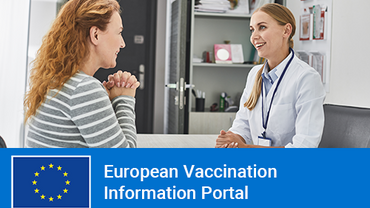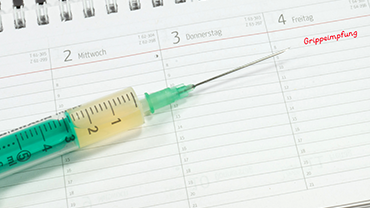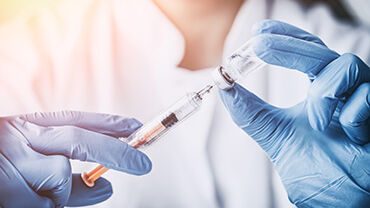Varicella (chickenpox)
Varicella is caused by the varicella-zoster virus (VZV), which also causes shingles (herpes zoster). The virus typically affects children aged 2‒8 years.
The symptoms of a chickenpox infection are very recognisable due to the rash it causes. All skin symptoms may be present at the same time. Once infected, people will progress through a series of symptoms:
- Fever
- Tiredness
- Headache
- Stomach ache
- Skin rash
- Skin bumps filled with fluid
- Scabs caused by the blisters breaking
- Blotchy skin
- Crusty spots
The severity of the disease varies from person to person, and it can even be asymptomatic.
The disease mainly affects children aged 2-8 years. In these cases, it is usually a mild disease from which children recover quickly. In infants, adults, pregnant women and immunocompromised persons, there can be complications such as:
- Bacterial infection of the skin or blood.
- Pneumonia (infection and inflammation of the lungs)
- Problems with blood clotting
- Liver problems
- Encephalitis (swelling and inflammation of the brain)
- Cerebellitis (inflammatory syndrome that causes brain disfunction)
- Congenital varicella syndrome, which causes lifelong physical and learning disabilities in the infant
The virus is highly infectious and airborne. It can be contracted by breathing next to an infected person, touching the fluid from the blisters of an infected person or on clothing, surfaces and toys.
Once a person passes varicella, immunity develops, but herpes zoster can develop later.
Vaccination is the most effective way to prevent chickenpox. The chickenpox vaccine is part of the childhood vaccination schedule in some EU/EEA member states.
Healthy people do not need antiviral treatment for varicella, as its symptoms can be reduced like any other disease. However, those at risk of complications should seek medical attention.
People infected with varicella should isolate themselves and not go to work or school.
Pregnant women and immunocompromised persons should stay away from people with varicella or herpes zoster.
People who have been in contact with the disease, and do not remember having had varicella, can be given immunoglobulin, but only for 96 hours after contact.
Read more facts about varicella







